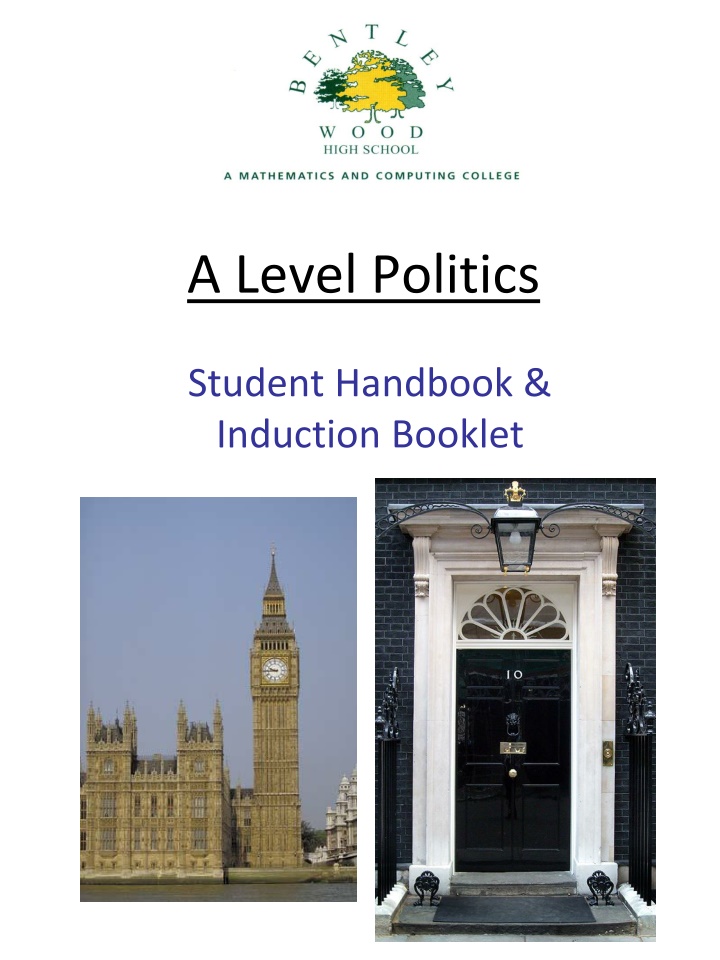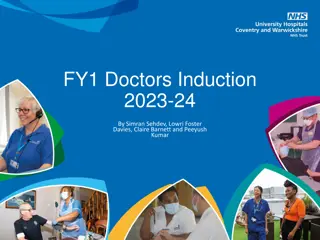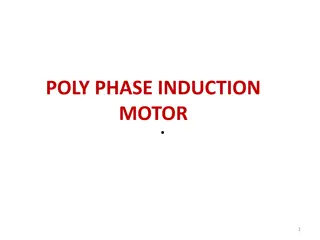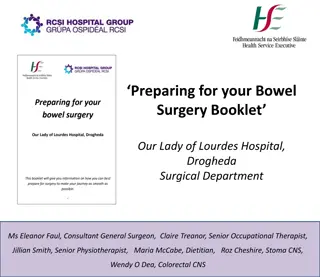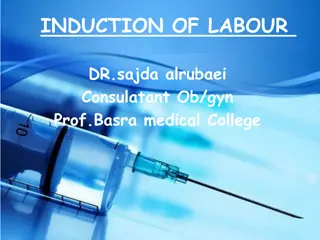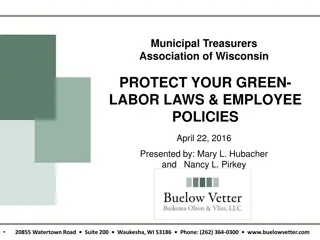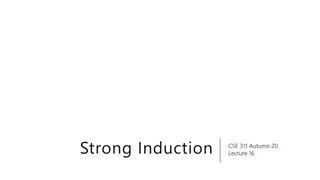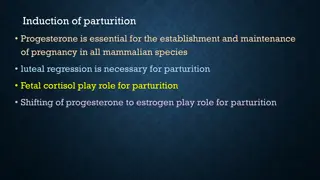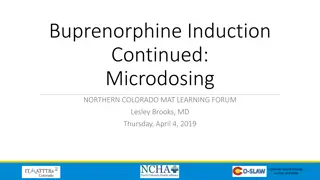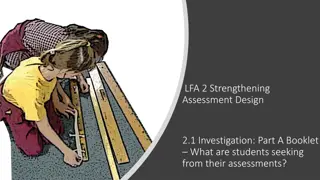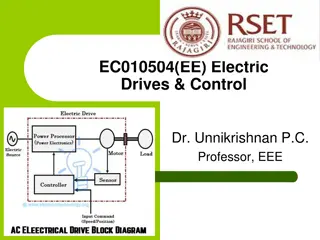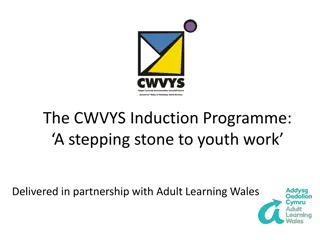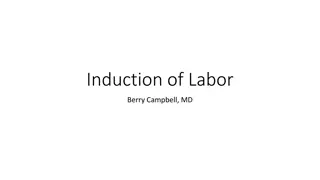A-Level Politics Student Handbook & Induction Booklet
A Level Politics aims to provide a balanced education in politics and understanding of the UK's political landscape. The course covers basic political ideas, structures, and processes, as well as global politics topics like global governance and regionalism. To succeed, students must engage with current affairs, read extensively, and participate in discussions on political issues while meeting deadlines for assignments.
Uploaded on Sep 06, 2024 | 1 Views
Download Presentation

Please find below an Image/Link to download the presentation.
The content on the website is provided AS IS for your information and personal use only. It may not be sold, licensed, or shared on other websites without obtaining consent from the author.If you encounter any issues during the download, it is possible that the publisher has removed the file from their server.
You are allowed to download the files provided on this website for personal or commercial use, subject to the condition that they are used lawfully. All files are the property of their respective owners.
The content on the website is provided AS IS for your information and personal use only. It may not be sold, licensed, or shared on other websites without obtaining consent from the author.
E N D
Presentation Transcript
A Level Politics Student Handbook & Induction Booklet
A Level Politics WHAT DOES THE COURSE AIM TO DO? It aims to: Provide you with a balanced education in politics , and understanding of the nature of politics, and an understanding in the context of the Untied Kingdom, including its local, national and European dimensions, and some aspects of comparative study of other political systems. You will be assessed on your ability to organise and present information, ideas and arguments clearly and logically in continuous prose using good quality English THE SKILLS YOU WILL DEVELOP Knowledge and understanding of basic political ideas , concepts, structures and processes, the relationship between them and how they work at different levels. An ability to interpret and analyse political information in various forms and from various sources, and to apply a range of political ideas concepts and theories. An ability to evaluate arguments, theories, values and ideologies to explain political behaviour and suggest solutions to controversial issues. The skills to organise and present an argument with relevance, clarity and coherence using good English.
WHAT DOES THE COURSE INVOLVE? What will you study? Teacher Topics Covered Exam Year 12: UK Politics Democracy and participation Political parties Electoral system Voting behaviour and the media Miss Taylor/Mr Brice Year 12 2 hours to also include Core political ideas. UK Government The constitution Parliament Prime Minister and executive Relationships between the branches Miss Taylor Year 12 Autumn and Spring Terms 2 hours to also include Non-Core political ideas. 2 exam papers 2 hours each to cover UK politics (including Core political ideas) and UK Government (including non-Core political ideas) Core political ideas: Conservatism Liberalism Socialism Non-Core political ideas: Feminism Mr de Jong Year 13 Year 13: Global Politics: Miss Taylor The State and Globalisation Global Governance: Political, Economic, Human Rights and Environmental Power and Developments Regionalism Liberalism and Realism 1 exam paper on Global Politics 2 hours Yr 12 Summer term and Year 13
HOW WILL YOU BE SUCCESSFUL IN THIS COURSE? YOU WILL NEED TO TAKE AN INTEREST IN CURRENT AFFAIRS AND POLITICAL ISSUES This will involve: Reading a QUALITY newspaper (such as The Times, Guardian, Telegraph, Independent or their Sunday equivalent; magazines and specific politics journals such as Politics Review as well as the set textbooks. Watching current affairs programmes such as Panorama, Despatches etc. and specific politics programmes such as Sunday with Laura Kuenssberg . Watching the news or listening to 'Today' on Radio 4. Discussing and debating political issues with both fellow politics students and others Keeping a scrap book of press cuttings on politics and issues Interest alone is not enough! You will have to read widely and work hard to understand: The institutions and main features of the British system of government and British politics. How these work in theory and practice The way they interact their strengths and weaknesses The way they may change Continuity is essential: Part-timers are of no use! You will be given a variety of tasks: Reading Research Short answers Stimulus response questions Essays. To ensure quick feedback and a planned workload it is essential that all work is completed by set deadlines.
WHICH RESOURCES WILL HELP WITH MY AS STUDIES? The textbooks will be provided by the school, the other resources here are recommended. Documentaries Adam Curtis, The Power of Nightmares a comparison of neo-conservatism in the US and radical Islam. Adam Curtis, Bitter Lake an examination of how the west s desire to control the Middle East has shown the seeds of radicalisation and political violence Adam Curtis, Hypernormalisation Why do chaotic events seem to be increasingly frequent? Curtis looks at why the War in Syria, the migrant crisis, the Trump presidency have happened and why their causes are pretty much impossible to understand. Johan Norberg, Globalisation in Good Norberg personal view on the impact of globalisation Errol Morris, The Fog of War Former Secretary of State for the Defence in the US, Robert McNamara looks back at the lessons he learnt during his career. Includes McNamara s thoughts on the dropping of the atomic bombs on Japan at the end of the Second World War and the American campaign in Vietnam. Errol Morris, Known Unknown Another former Secretary of State for the Defence in the US, Donald Rumsfeld, looks back at his career. Includes his thoughts on the Iraq War. Good contrast with The Fog of War. No Plan, No Peace: From Success to Disaster in Iraq made by the BBC title says it all! Podcasts Websites Foreign Office Travel Wesbite, https://www.gov.uk/foreign-travel-advice - the Foreign Office s latest take on pretty much everywhere in the world. BISA British International Studies Association, https://www.bisa.ac.uk/ - designed especially for students. There is a newsletter you can sign up to. The BBC Global News podcast The Guardian: Today in focus The Intelligence from the Economist The Rest is Politics Subscription to the Politics Review. https://www.hoddereducation.co.uk/Produ ct/9781471890598.aspx
Keep up to date with the news: The Week (http://subscription.theweek.co.uk/subscribe/) The Economist (https://subscriptions.economist.com) The Guardian http://www.guardian.co.uk/ The Telegraph http://www.telegraph.co.uk/ The Independent http://www.independent.co.uk/ The Times http://www.thetimes.co.uk/ BBC News http://www.bbc.co.uk/news/ PoliticsHome http://www.politicshome.com/uk/ Labour List http://labourlist.org Conservative Home http://www.conservativehome.com UK Government and Politics Books The UK constitution Anthony King Who Governs Britain? Martin Loughlin The British Constitution: A Very Short Introduction British Politics & History: Andrew Marr A History of Modern Britain Andrew Rawnsley The End of the Party Ben Pimlott Harold Wilson Boris Johnson s The Churchill Factor: How One Man Made History Charles Moore Margaret Thatcher: The Authorised Biography (Vol. 1) Dominic Sandbrook Never Had It So Good: A History of Britain from Suez to the Beatles Seasons in the Sun: The Battle for Britain, 1974-1979, State of Emergency: The Way We Were: Britain, 1970-1974 White Heat: A History of Britain in the Swinging Sixties 1964-1970 John Campbell The Iron Lady John Murray and Anthony Sampson Who Runs This Place?: The Anatomy of Britain in the 21st Century Jeremy Paxman published a book on the First World War and he also made a documentary based on it, Great Britain's Great War Jonathan Powell's memoir about the Blair government is very entertaining, The New Machiavelli
Global Politics Books John Andrews, The World in Conflict a consideration of the big questions about war and violence. Why does it happen? What forms does it take? Where and how might future conflict happen? Ha Joon Chang, 25 Things They Don t Tell You About Capitalism Has the washing machine changed the world more than the internet? Does the USA have the highest standard of living in the world? Are people in poor countries more entrepreneurial than those in rich ones? Chang answers these questions and many others in a way that engages and entertains. Ha Joon Chang, Kicking Away the Ladder Chang makes the provocative argument that developed countries are attempting to kick away the ladder with which they climbed to the top, thereby preventing developing countries from adopting the policies that they themselves used. Amy Chua, World on Fire - a World Bank economist argues that the global spread of free market economics creates tension and resentment which have led to a more dangerous and divided world Thomas Friedman, The World is Flat A powerful defence of the free market as the route to global prosperity and peace. A good contrast with Amy Chua s World on Fire Richard Haas, A World in Disarray an interesting insight into contemporary politics by the president of UN s Council on Foreign Relations: These are no ordinary times. It will not be business as usual in a world of disarray; as a result, it cannot be foreign policy as usual. Henry Kissinger, World Order the master of realpolitik defends a realist approach to managing world events Tim Marshall, Prisoners of Geography an examination of how far a nation state s foreign policy is determined by its geographical location. Through a series of case studies of individual countries, Marshall considers the extent to which world leaders are prisoners of their own geography or whether they are free to determine their own foreign policy. Douglas Murray, The Strange Death of Europe: Immigration, Identity and Islam Murray views Europe as a continent bent on destroying its traditional culture through declining birth rates, acceptance of mass immigration and cultivated disgust and self hatred. Controversial. Tim Shipman, All Out War: The Full Story of how Brexit Sank Britain s Political Class a well written account of how and why Britain voted to leave the EU. Joseph Stiglitz, Globalisation and its Discontents the former World Bank vice president condemns the neo-liberal Washington consensus with the zeal of a convert Guy Verhofstadt,Europe s Last Chance an endorsement of closer European integration
Induction Tasks TASK 1: complete the following activities. You will need to start with the booklet Parliament Find Your Way . Read the relevant pages in this booklet and then complete the following tasks. 1. The History of Parliament Read page 4-5 in the booklet. Visit www.parliament.uk/housesofhistory Create a timeline to illustrate the Journey to Democracy . 2. Democracy Read page 6-7 in the booklet. Write a definition for the following words: Democracy Representative democracy Direct Democracy Politics Dictatorship Suffrage Franchise Watch Democracy? You Decide : http://www.parliament.uk/education/teaching-resources- lesson-plans/democracy-parliament-and-government-video/you-decide-video/ Answer the following question: What would the UK be like if we didn t live in a democracy? What are the strengths and weaknesses of the UK system of democracy? What other options are there and where are they in place right now? 3. The Constitution Read page 8-9 in the booklet. Write a definition of the following words: Constitution Uncodified constitution Codified constitution Parliamentary sovereignty Devolution The Human Rights Act The European Union The UK Supreme Court
4. The constitution: The EU Read page 10-11 in the booklet. Visit http://Europa.eu Use your research to answer the following question: In what areas can the EU make laws that the UK has to follow? What happened if there is conflict between EU law and UK law? Provide an example of where EU and UK law has conflicted what was the outcome? Make a list of the pros and cons of the UK being a member of the EU. Study the results of the EU referendum on the 23rd June what was the outcome? Why do you think this side won? 5. Parliament Read page 12-17 in the booklet. Write a definition of the following words: Constituents MPs Government Minister Backbencher The Executive Government Opposition Cabinet Speaker The Legislature Crossbenchers Lord Speaker House of Lords Act 1999 Hereditary Peers Life Peers Peers Spiritual Bicameral legislature House of Commons House of Lords Monarch Legislation Scrutiny Representation Two-House system Bills The Queen s Speech Select Committees General Committees Public Bills Committee Grand Committees Liaison Committee Prime Minister's Questions Ministerial Questions What role does the monarch have in our Parliament? What is the benefit of a two-House system? What is the key role of the committees? What is the main different between the House of Commons and the House of Lords? Who do MPs represent?
5. Parliament contd What is the difference between the Executive and the Legislature? How in the UK system of government do these over-lap? (Clue: this is called Fusion of Power) What is the major problem with the House of Lords in terms of democracy? What are the pros and cons of having an unelected second chamber? Who would you nominate as a Life Peer and why? High Court Judges also used to sit in the House of Lords: where do they now sit? Why do you think it was important to separate them from the work of the House of Lords? 6. Legislation: Making New Laws Read page 12-17 in the booklet. Write a definition of the following words: Public Bills Government Bills Private Members Bills Manifesto Amendments Division Filibuster Free Vote Green Paper Motion Ping-Pong Tellers Wash-up White Paper Play the following game: www.parliament.uk/myuk Answer the following questions: What one law would you make and why? How would you enforce the law? What implications might it have for communities in the UK?
7. Elections and Voting Read page 20-21 in the booklet. Write a definition for the following words: General election Devolved Assembly/ Parliament elections European elections Local elections By-elections Referendums Read through the different types of voting systems on page 21. Which do you think would be the best system for the UK to adopt for General Elections and why? In 2011 there was a referendum on introducing AV. Research the outcome of this referendum. Why do you think this outcome occurred? 8. Elections and Voting: Trends and Types Read page 22-23 in the booklet. Write a definition for the following words: Voter Turnout Polling Day Compulsory Voting Separation of Powers Proportional Representation Why do you think voter turnout is low in Britain? Should the UK make voting compulsory? What are the arguments for and against? Should the voting age be lowered to 16? What are the arguments for and against? You will soon be old enough to vote how do you register to vote? Go to www.parliament.uk/referendums and research another referendum that has happened in the UK. (Do not select the AV Vote or the EU referendum) What was the topic of the referendum? What was the turnout? What was the outcome?
9. Political Parties Read page 24-25 in the booklet. Write a definition for the following words/topics: Political Party Coalition government Majority Functions of political parties Party Whips Party Rebels withdrawing the whip Which political party currently governs this country? How many seats (or MPs) do the three main parties each have in the House of Commons? Research the main political position of the three main political parties in the following areas: Immigration Taxes and the Economy The NHS Security, defence and foreign affairs Jobs Education Law and Order Benefits/ Poverty Who would you vote for and why> 10. Pressure Groups Read page 26-27 in the booklet. Write a definition for the following words/topics: Pressure Group Lobbying Petitions Popular protest Celebrity endorsement Direct Action. How is a pressure group different from a political party? Research one pressure group why is its aim? Who does it represent? What methods has it used to try to get its message across? How successful has it been?
Current Affairs Diary TASK 2: in addition to these research projects you must also start your current affairs diary in the summer holidays. You will continue to keep this diary throughout your time studying politics in the sixth form. How to keep a current affairs diary: 1. Each week listen to, watch or read the news and make a list of the top three news stories. You can do this by looking at one of the internet news sites and/or spending some time each day in the school library or at home looking at a newspaper. 2. In your diary make a list of the top three stories, including a brief outline of what has happened. 3. By the end of the summer, select one of these stories and write a short editorial on it. This should include: An objective explanation of the issue. How it has progressed. Opinions from different viewpoints. Your opinion including where applicable alternative solutions to the problem or issue being criticised. Do not just copy and paste from the internet, particularly with word definitions make sure that you really understand everything you write. This may mean that you need to do further research to develop your understanding.
